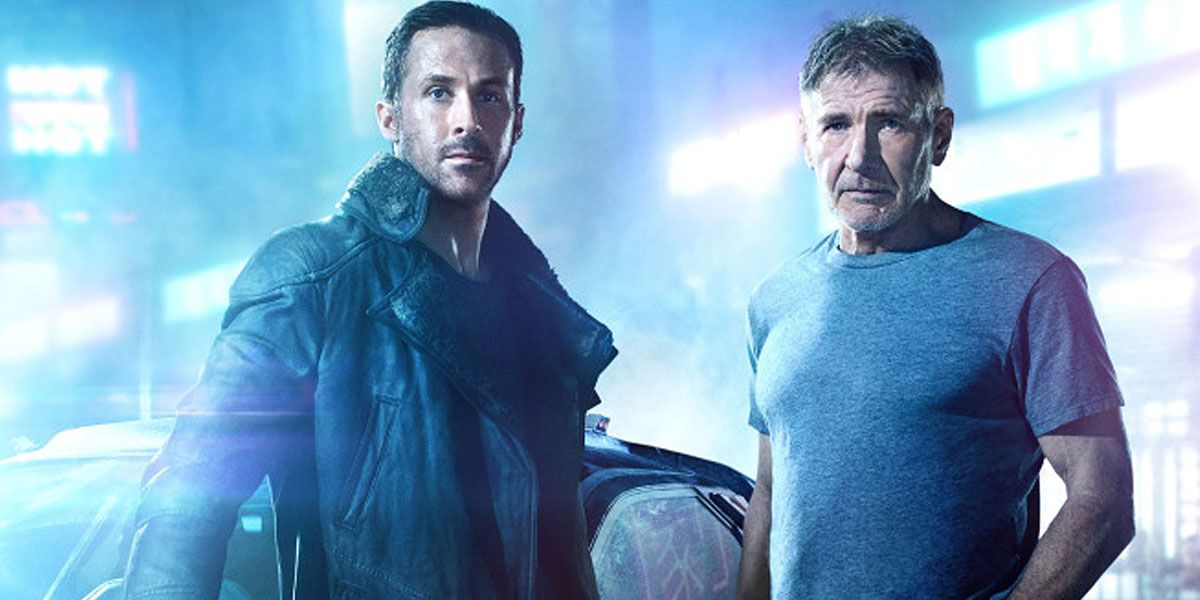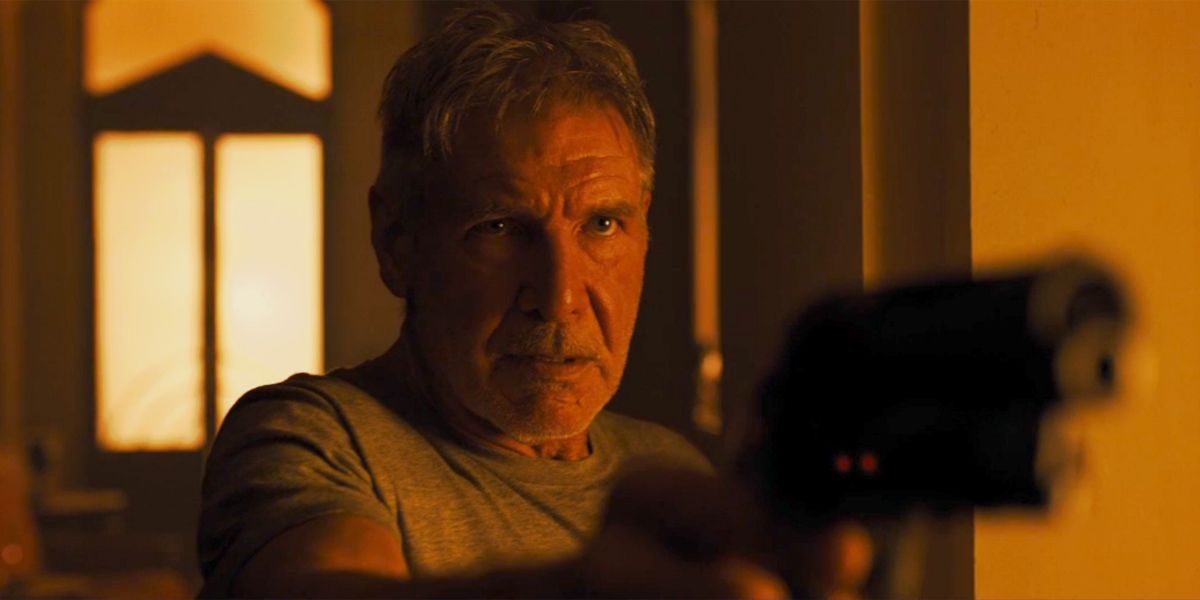It’s hard enough to create a satisfying sequel to any movie, let alone to do it 35 years after the first film debuted. But attempt to craft a second chapter to Blade Runner, a decidedly and uniquely visionary piece of cinema that transcended middling box office and polarized reviews to become something more than a movie, something part and parcel of our collective cultural consciousness? That's sheer folly, right? A Repli-can't.
Fortunately, no one told this to filmmaker Denis Villenueve (Arrival, Sicario, Prisoners), who defied the odds to deliver the absorbing, complex and visually dazzling Blade Runner 2049.
RELATED: Blade Runner 2049 Anime Prequel Arrives From Cowboy Bebop Director
Ultimately, the film doesn’t break any especially new or bleeding edge ground in terms of expanding or advancing the now-decades-older dystopian, tech-dominated, noir-tinged and philosophically rich world first unveiled in 1982 by filmmaker Ridley Scott (who produced 2049) and loosely adapted from sci-fi author Philip K. Dick’s novella Do Androids Dream of Electric Sheep?. But by any measure Blade Runner 2049, by screenwriters Hampton Fancher (who provided the sequel’s story) and David Peoples, is an impressive and very entertaining feature, indeed.
Though the film is lengthy and moves at a deliberately slow pace – aspects that may keep it at arm’s length from more casual audiences – for fans of the original, admirers of thoughtful, mature science fiction and lovers of staggeringly sumptuous cinematic imagery, Villenueve masterfully captures the look and, most importantly, the mood of Scott’s wholly original creation. It feels like Blade Runner – thanks in large part to the astonishingly artful cinematography of the Villenueve’s frequent collaborator Roger Deakins, whose brilliant extrapolation of the first film’s visual template and glorious futuristic vistas encases a similarly bare-bones film noir-inspired story filled with sci-fi flourishes and its own particular brand of Replicant angst.
At the studio’s behest, reviewers have been asked to avoid revealing many, if any, plot and even character details from the film, and it’s a reasonable request. Blade Runner 2049 is at its best a triumphant exercise in all-encompassing cinema, the kind of story best told in widescreen. Like its predecessor, it really should be experienced directly rather than sampled. That said, it is fairly crucial to be familiar with the plot points of the original film.
The story here is carried largely on the shoulders of K, a new Blade Runner – the shamus-like contractors who are tasked with “retiring” rogue Replicants, the android offspring of humanity who are generally much more stable than in the era of Harrison Ford’s Rick Deckard, but still occasionally need putting down. And like Deckard, his assignments lead him into a byzantine labyrinth of dark and dangerous characters and plot twists worthy of any Raymond Chandler or James M. Cain tale, tinged with sci-fi existentialism. It’s a cyberpunk Chinatown.
As K, Ryan Gosling once again demonstrates his compelling ability to hold the audiences' attention at all times, however minimal his dialogue – if he were born 100 years earlier, he’d have been a star in silent era, too. Gosling’s is an impressively internal performance, especially in a film where the external appears at first glance to reign. He provides a palpable degree of emotional heft that grounds the story amid all its futuristic high-rises. Villenueve’s work with Gosling here, like his collaboration with Amy Adams in Arrival, suggests that one of the filmmaker’s greatest strengths lies in his ability to effectively juxtapose a top-flight actor against a fantastic backdrop while never letting one overshadow the other.
RELATED: Blade Runner 2049 Will Answer Whether Deckard Is a Replicant
Of course it’s been well-publicized that Harrison Ford returns in the film. While perhaps his prior reprisals of familiar, iconic film characters like Han Solo and Indiana Jones softens what should be the bracing impact of seeing Deckard three-and-a-half decades later, Ford still, as always, comes correct, bringing an even more world-weary quality to role melded to a still-steely determination. I’s a Ford specialty to be believably heroic, believably vulnerable. For audiences, if not the film’s inhabitants, Deckard’s presence looms ghost-like throughout the familiar cityscape from the moment the film starts, and the unique way he’s employed in the story, after much anticipation (at least three times during the film, I thought to myself, “Okay, here’s where Deckard comes in”), pays off handsomely.
There’s also an impressive array of performers in quirky supporting roles, and most of them shine, especially the women. Ana de Armas, Mackenzie Davis, Sylvia Hoeks and Carla Juri make the most of their roles. Indeed, de Armas and Hoeks in particular deliver star-making performances that are hard to take your eyes off of – they’ll land roles for years on the basis of their turns in this film alone. Robin Wright’s role isn’t as flashy or prominent, but it’s a refreshing departure from some of her recent parts, and one she plays with a blend of been-around cynicism and maternal protectiveness. Genre favorites Lenny James and Dave Bautista fit effortlessly into the surroundings and acquit themselves admirably, while Jared Leto delivers on his trademark eccentricity to good effect.
Ultimately, Blade Runner 2049 won’t leave anyone arguing over whether it or the ’82 movie is the superior film: for originality and influence alone, Blade Runner wins hands down, every time. But Villenueve has crafted a film that is in sync with the first tone and themes. Countless other films have aped Blade Runner’s iconography, but this one inhabits it, and tells its own tale in a very entertaining manner. Among fans of artful, eye-popping and heady science fiction, no one will be dreaming of electric sheep as this one is playing on the big screen.


